Travelling frequently, especially on long-haul flights, can take a toll on the body and immune system. The high altitude, pressurised cabin, and constant interaction with many other people can contribute to bloating, fatigue, and congestion. To help travellers arrive feeling refreshed, here are some travel health hacks on staying healthy while in transit, as revealed by a senior cabin member.
Also read: 10 Underrated Travel Tips Only True Experts Know About
1. Exercise before your flight

Image credit: Katrin Bolovtsova via Canva Pro
Engaging in light exercise before your flight can enhance blood flow and reduce sluggishness. It will help you to get settled into your seats more comfortably and feel more relaxed on your journey. For example, activities such as stretching, walking, or even dancing can boost energy levels.
2. Try to get enough sleep on the plane
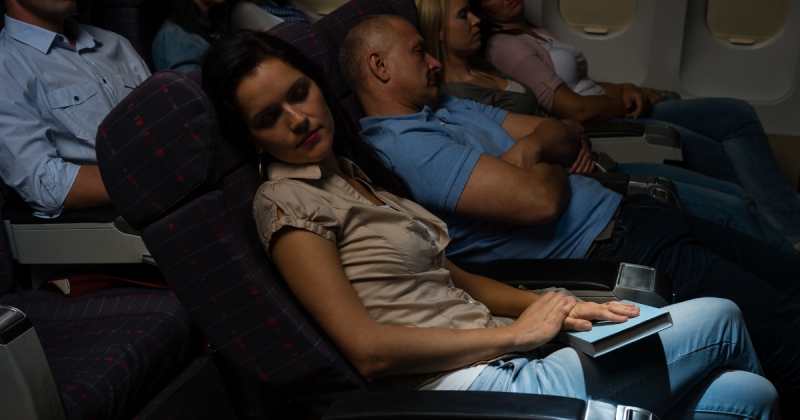
Image credit: Candy Box Images via Canvas Pro
Apart from exercising, getting quality sleep is also important to stay healthy when you’re travelling. Getting enough sleep can reduce fatigue and help you to stay rested. You’ll want to be all freshened up by the time you arrive at your destination and ready to start your adventure!
3. Sleep better with a neck pillow
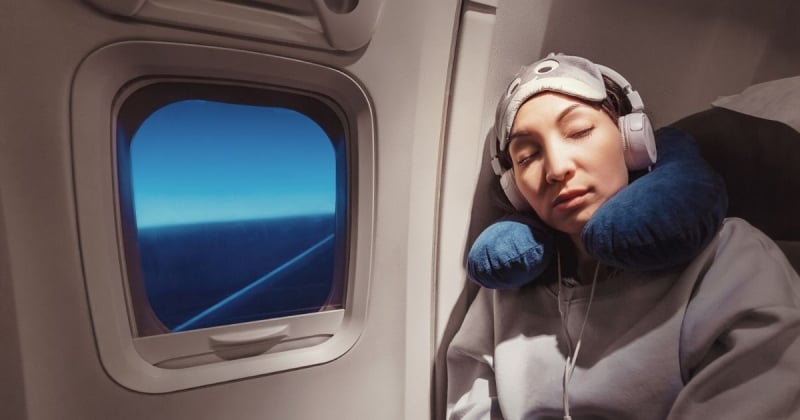
Image credit: frantic00 via Canva Pro
Getting quality sleep can sometimes be challenging due to difficult seating and cabin conditions. At times like this, having a neck pillow with you can be useful to enhance your sleep experience. A variety of travel pillows are available, ranging from uniquely shaped designs to cushioned straps for a customised experience.
For those who struggle with head-bobbing, reversing a traditional neck pillow to support the chin instead of the cheek can be effective in helping you to sleep better on the airplane.
4. Try meditation

Image credit: avi_acl via Canva Pro
Meditation can be useful in regulating breathing and calming your mind. Spending some time meditating on the airplane can help to alleviate stress and prepare your mind to start your next adventure. Using apps like Insight Timer for guided meditation can aid in relaxation, help you fall asleep, or alleviate fear of flying.
5. Use natural sleeping aids

Image credit: anytka via Canva Pro
Melatonin and other natural sleep aids can be beneficial, but stronger medications should be avoided, especially if alcohol consumption is planned, as this can lead to adverse effects.
6. Do light exercises in-flight
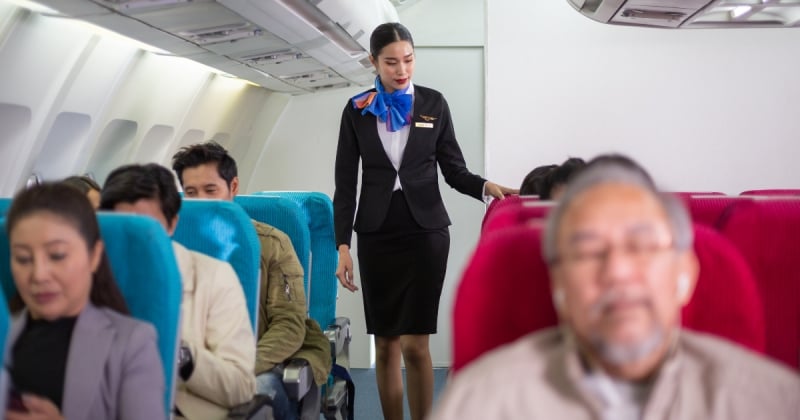
Image credit: Blvckshot via Canva Pro
Regular movement during a flight is important. Walking up and down the aisle or performing seat exercises can improve circulation. Some airlines provide videos with stretching tips, and dedicated relaxation spaces are being introduced on certain flights.
7. Make sure you stay hydrated
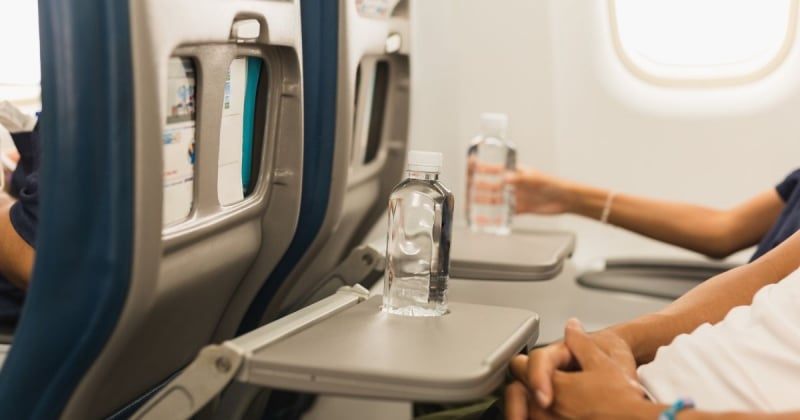
Image credit: Suwinai Sukanant via Canva Pro
The pressurised environment of a plane can lead to bloating and dehydration. Drinking plenty of water is essential. The Aerospace Medical Association recommends drinking about eight ounces of water every hour during a flight, especially for flights longer than three hours.
8. Avoid high sodium food
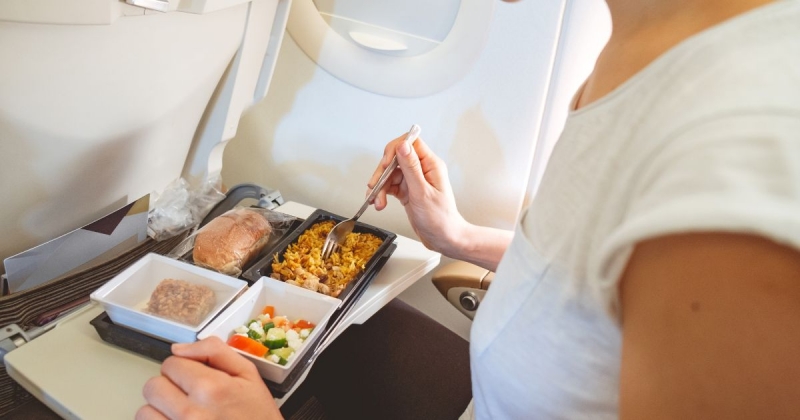
Image credit: zoranm via Canva Pro
Food high in sodium contribute to bloating and dehydration. It is better to opt for nutrient-dense snacks like nuts and fresh fruits.
9. Allow your body to adjust to a new environment
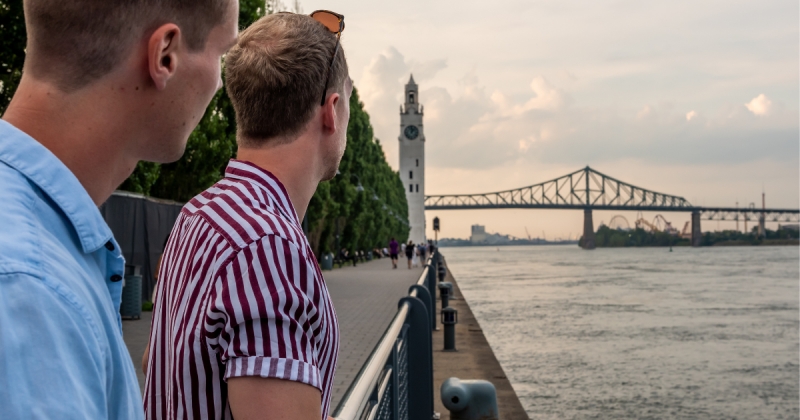
Image credit: A&J Fotos via Canva Pro
Adjusting to new time zones upon arrival is also crucial for combating jet lag. Strategies include sticking to home-base time if the stay is brief or adopting a flexible approach to eating, sleeping, and staying active as the body adjusts.
10. Take up a balanced diet and supplements

Image credit: Jane Doan via Canva Pro
Maintaining a strong immune system is vital for frequent travellers. A healthy diet rich in fruits and vegetables supports immune function. Supplements like Vitamin C, Vitamin D, zinc, and selenium can also help bolster immune health.
Also read: 17 Best Destinations for Solo Female Travellers
By incorporating these practices, travellers can better manage their health and well-being during their journeys. Adopting strategies such as proper sleep, regular movement, hydration, and nutrition can make the experience of air travel more comfortable and less taxing on the body.
Featured image credit: pixelshot via Canva Pro





